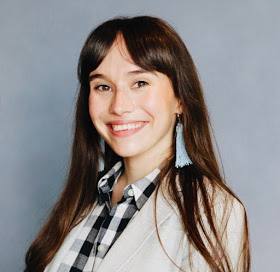After years of bipartisan effort and three failed attempts, The Southwestern Travis County Groundwater Conservation District was officially confirmed during the Nov. 5 election, making it the 99th such district in Texas.
The SWTCGCD, which will work to manage and preserve the final unregulated section of the Trinity Aquifer, was approved by nearly 75% of local voters from its corresponding areas of Bee Cave, West Lake Hills, The Hills, Lakeway and several unincorporated areas.
State Rep. Vikki Goodwin, D-Austin, led the official oath of office for the six newly elected board members during SWTCGCD's first meeting Nov. 15 at the Bee Cave School House.
District directors are Rick Scadden, Juli Hennings, Jim Urie, Tricia Davis, James Dower and Tim Van Ackeren.
“Our area was designated as a [Priority Groundwater Management Area] in 1990, so it’s taken 29 years to get where we are today,” Scadden said Nov. 15.
The district's first formal tasks include establishing an official fiscal year, drafting a budget, appointing a seventh director and developing a groundwater management plan, which will become the framework for protecting and managing the area’s groundwater supply.
Drafting a budgetUrie, head of the district's finance committee, stressed the importance of developing the first draft of its budget, which holds about $15,000 in its general fund. The SWTCGCD will base its initial budget draft on a modified template developed by the Blanco Pedernales Groundwater Conservation District, which is similar in size to the SWTCGCD, according to Scadden, who added the draft is due to Travis County within 30 days of Nov. 15.
Until the district can begin collecting revenue, a large majority of its funds will come from Travis County. According to the district, a future expense could include an interlocal agreement with Groundwater Management 9, an organization of nine groundwater districts, regarding a study conducted on the district's environmental conditions. The SWTCGCD may be expected to contribute up to $6,600, which could be paid in installments, Hennings said.
A larger expense could come from the future election of the district’s final member, whose jurisdiction will include the areas of Hudson Bend and Cardinal Hill. Though there is no required timeline for the district to appoint a member, Theresa Golde, SWTCGCD's attorney, said further clarification is needed with respect to when the member would be required to appear on a ballot.
Once the district has matured it will collect funds through a fee system implemented on nonexempt groundwater wells, which are wells located on more than 10 acres of land and capable of pumping more than 10,000 gallons per day. Those criteria do not include livestock or poultry wells producing less than 25,000 gallons per day. Based on the district’s establishing legislation, maximum fees could include a $1,000 new well construction fee; a $400 renewal fee; a $1,000 water utility connection fee; and a fee of $0.20 per 1,000 gallons used, according to district information.
The exact details of the fee system will be established within the district’s groundwater management plan, which may also be based on the Blanco Pederdales district, Scadden said. The SWTCGCD held*(VERIFY ONCE DATE PASSES) a special board work session Dec. 4 to begin drafting these plans.






